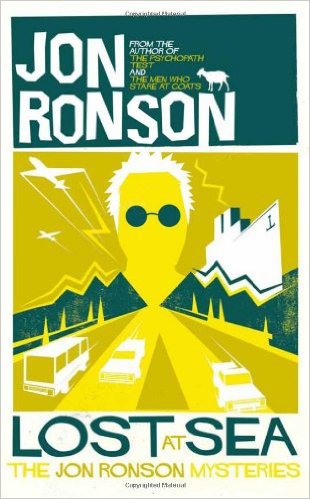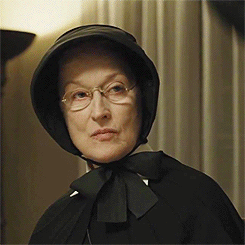
Lost at Sea: The Jon Ronson Mysteries by Jon Ronson – Available Here
Journalists have book deals. They write for papers and magazines and when a certain quota of not-too disposable articles are written they are collected and sold as a book for a new and separate audience. That is what this book is, a collection of articles ranging from a dead Disney Cruise line worker all the way to that once prevalent fad of indigo children, of which my personal experience is limited as though I possess great supernatural skill I am no longer a child and the term Indigo men doesn’t ring of hopeful innocence quite the way the Indigo children does.
So we get lots of quick articles compressed into a single edition. Some are humorous and some are simply tiresome, which is entirely natural given how wide the spectrum of topics was. They all fit the kitschy strangeness that Ronson seems to search for in all of his work, which is fine, but at this point I’ve decided I’m pretty much burnt out on Ronson. His humor and tone are still there, unchanging, etched in stone by decades of practice, but after the first The Elephant in the Room And So You Have Been Publically Shamed, these last two books have felt light, too much the same in the way he approaches every issue.
This not to say there are not some very excellent pieces here. Who Killed Richard Cullen? and Amber Waves of Green are the strongest in the collection. The first gives an oddly prescient look at the 2007 recession as Ronson tries to understand the rapacious industry behind the yes-yes-yes credit card culture, the other is a series of interactions with six people from different parts of the wealth (or lack thereof) spectrum. They are both sad, upsetting, and cut to an often overlooked murmur in the heart of American life.
I’m not done with Ronson. I like him, but he is not a writer that I feel you can binge. While he may enlighten you, amuse you, the formula is there and the adventures quickly begin to feel slightly less colorful. My advice to anyone looking forward to reading a book of Ronson’s is to allow a 2-3 book buffer between them. Gorging as I did I feel very strongly the Law of Diminishing Returns, they are fine but I have little doubt that if I had only tempered my Netflix-gilded propensity to gorge, I would have had myself a joyful time in the various pieces of the world Ronson finds himself inhabiting.
So I’ve got The Psychopath Test and Men Who Stare at Goats sitting on my bookshelf, and likely until 2018 that is where they will stay until such a time as I am recovered enough to follow my own advice.
So there you have it. Jon Ronson: A Sometimes Food.
Share this:‘”He gets paid every two weeks,” says Rebecca. “For state and federal tas they take about $180. Then for health insurance they take about $375.”
“The health costs go up every year,” says Dennis. “And not just the regular 4 percent for inflation. It could be 10 percent, 17 percent…”
I ask them if they feel worse off than they did a few years ago. Rebecca says, “Yes, a little. The cost of everything, like health insurance, gas, and groceries, has been going up by leaps and bounds. Some things have even seemed to double. Versus our income not changing that much.”
I tell them about the health system in my native UK—free health care for everyone. I say I remember Glenn Beck trying to scare America by saying that if ObamaCare went through, things would end up like Britain, with a savage, failing socialist health care system. “But it’s not failing,” I say. “It’s great. And nobody has to pay anything.” (Actually, it’s funded by tas, and some parts of it work more efficiently than others, but you’d be hard-pressed to find a Brit who doesn’t feel proud of the system.)
Dennis and Rebecca look at me warily, as if I might be pretending for some nefarious European socialist reason that the UK’s National Health Service is a functional thing. But I’m not a socialist, and it really is.’ – Jon Ronson, Lost as Sea: The Jon Ronson Mysteries





